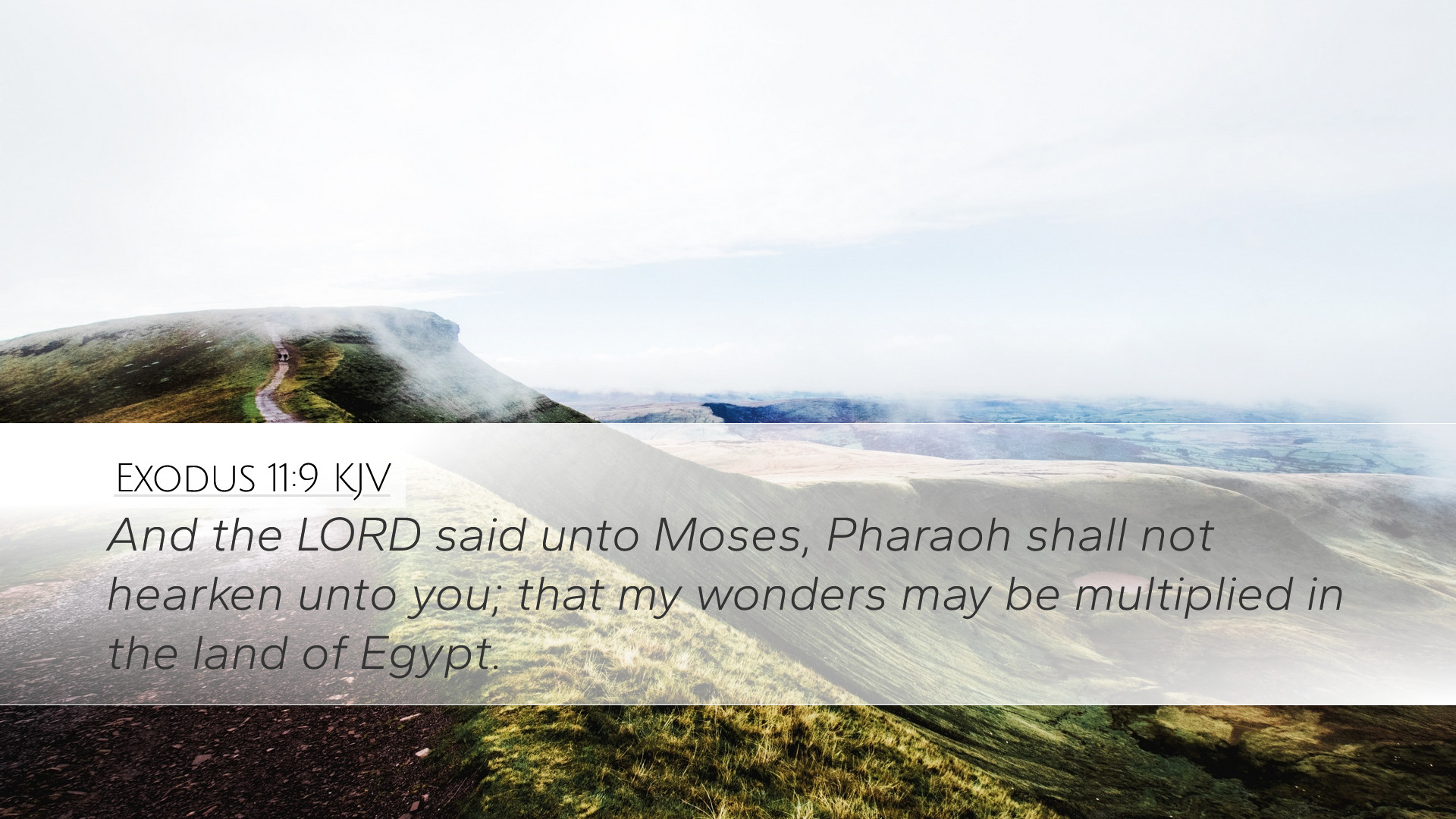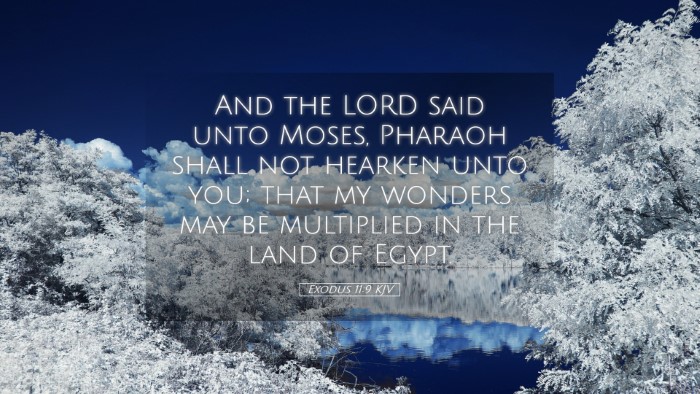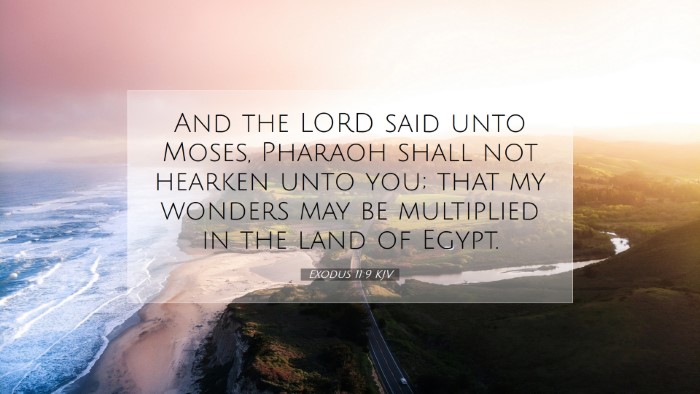Commentary on Exodus 11:9
Verse Context: Exodus 11:9 reads, "And the LORD said unto Moses, Pharaoh shall not hearken unto you; that my wonders may be multiplied in the land of Egypt." This verse serves as a prelude to the final plague that God is about to unleash upon Egypt—the death of the firstborn. It emphasizes the profound resistance Pharaoh has displayed against God's commands and the consequent increase in God's signs and wonders.
Historical Background
The context of this verse is found in the larger narrative of the Exodus, where God seeks to liberate the Israelites from Egyptian bondage. Pharaoh's obstinacy and heartening of his heart is central to the narrative, showcasing a theological motif regarding divine sovereignty and human free will.
Theological Insights
This verse touches on several significant theological themes:
- Divine Sovereignty: God's control over Pharaoh's heart serves a purpose that fulfills His divine plan. The statement indicates that God, at times, allows individuals or nations to persist in rebellion to demonstrate His power and judgment.
- Judgment and Mercy: The amplification of wonders serves both as a judgment upon the Egyptians and a revelation of God’s mercy for the Israelites, signifying a clear distinction between the two nations.
Commentary Excerpts
Matthew Henry's Commentary
According to Matthew Henry, this verse underscores a poignant truth about God's foreknowledge. He notes that God’s declaration about Pharaoh's response highlights that the failure of humanity to heed divine warnings leads ultimately to divine intervention. Henry elaborates on the significance of God's wonders being multiplied; each sign carried layers of meaning and weight as it strove to compel Pharaoh toward repentance.
Albert Barnes' Notes
Albert Barnes offers additional insights, stating that God's foreknowledge of Pharaoh's intransigence serves to reinforce the power of God’s act—demonstrating that miraculous signs are meant not merely for astonishment but for the instruction of the people. He comments on the particular intention behind these wonders, which are designed to exhibit both God's sovereignty and the futility of Pharaoh's resistance. Each wonder becomes a pedagogical tool for the Egyptians, revealing their hardness of heart and the inevitability of their judgment.
Adam Clarke's Commentary
Adam Clarke expands upon the notion that the increasing signs are indicative not only of judgment but also of a profound opportunity for repentance that Pharaoh squandered. He emphasizes the moral implications of this narrative; a warning to leaders that rejection of divine counsel incurs grave consequences not just for themselves but for their people. Clarke points out that while Pharaoh's heart was hardened, the wonders were ultimately meant to reveal the compelling nature of God’s authority and love for His chosen people.
Practical Applications
This passage calls for several practical applications for contemporary readers:
- Response to Divine Warnings: Just as Pharaoh was warned, believers today must heed God’s voice and follow His direction, recognizing that continued rebellion leads to dire consequences.
- Understanding God’s Sovereignty: It is essential for Christians to grasp the reality of God’s authority. His plans are perfect and will be accomplished, regardless of human opposition.
- Preparation for Worship: Recognizing the greatness of God’s wonders should lead to a posture of reverence and gratitude, inspiring awe in corporate worship and personal devotion.
Conclusion
Exodus 11:9 encapsulates a pivotal moment in the Exodus narrative, reinforcing themes of divine power, human resistance, and the unfolding of God’s plan of salvation for His people. As this verse positions us to witness the culmination of God’s signs, it challenges both theological understanding and personal faith. The commentary from Henry, Barnes, and Clarke offers rich insights into the significance of divine warnings, the nature of judgment, and the hope embedded within God’s acts—a timeless reminder for pastors, students, and scholars alike.


